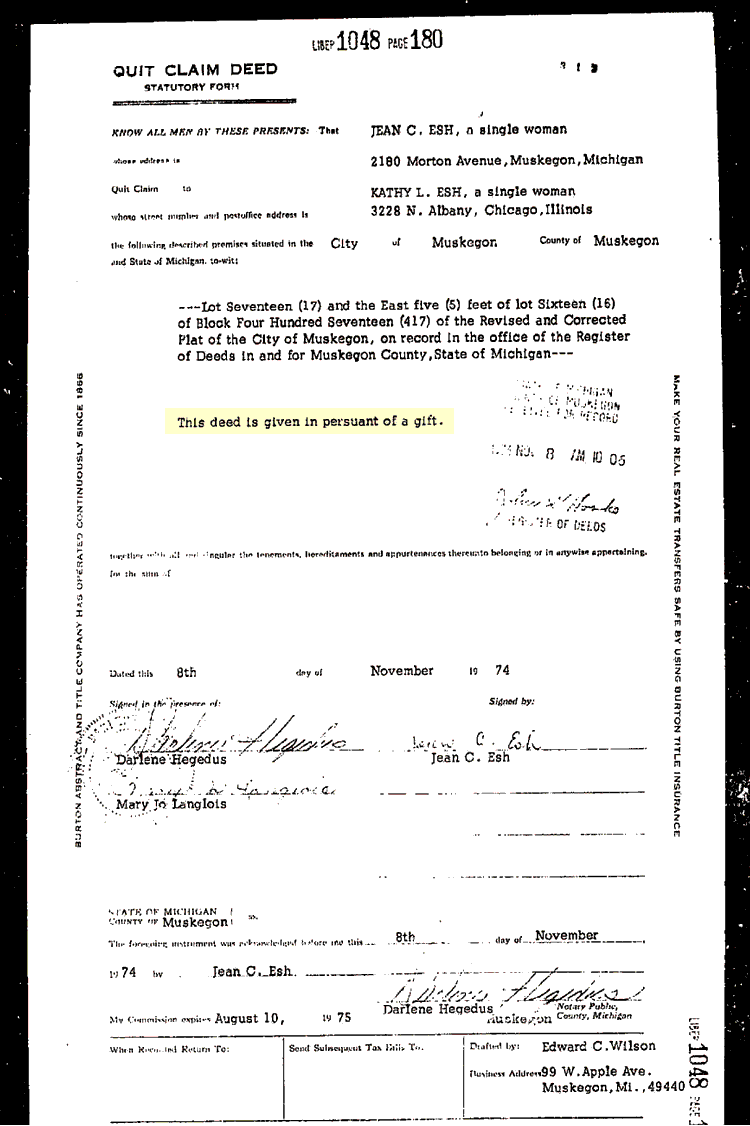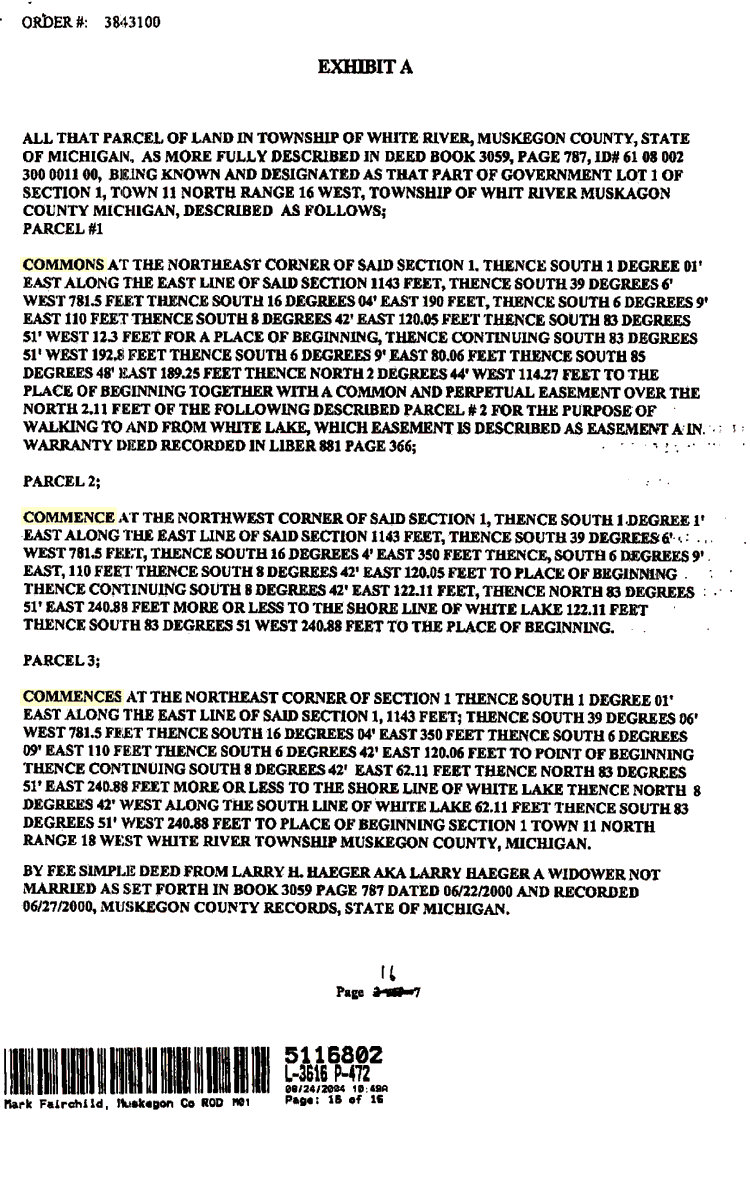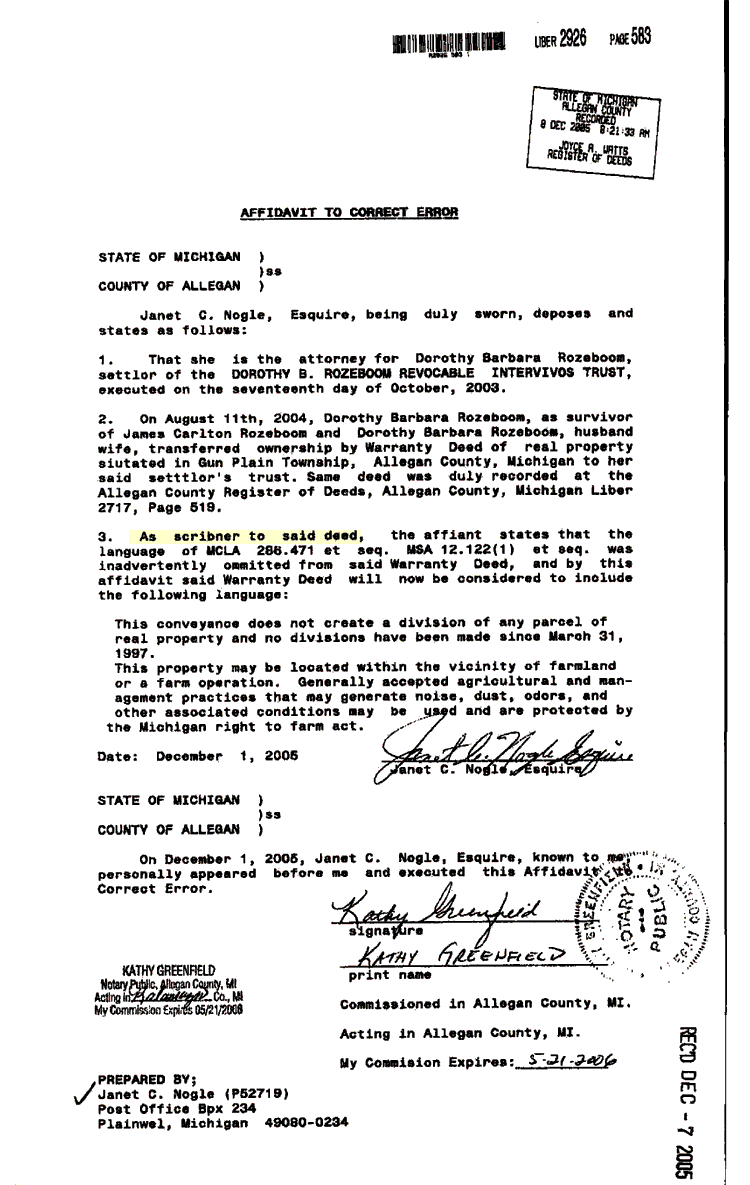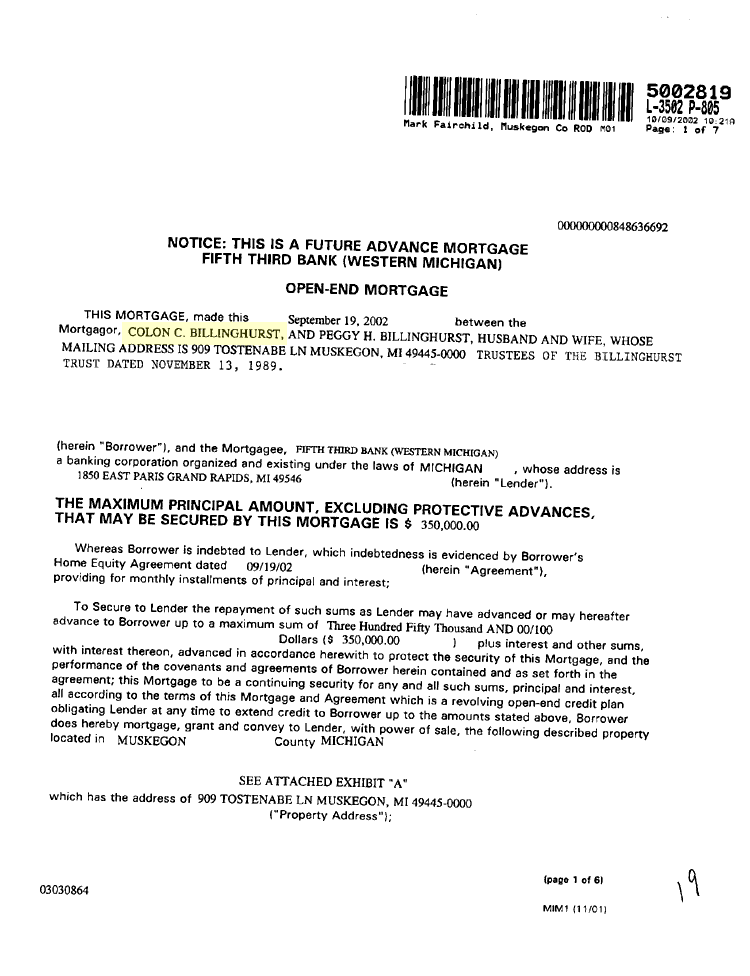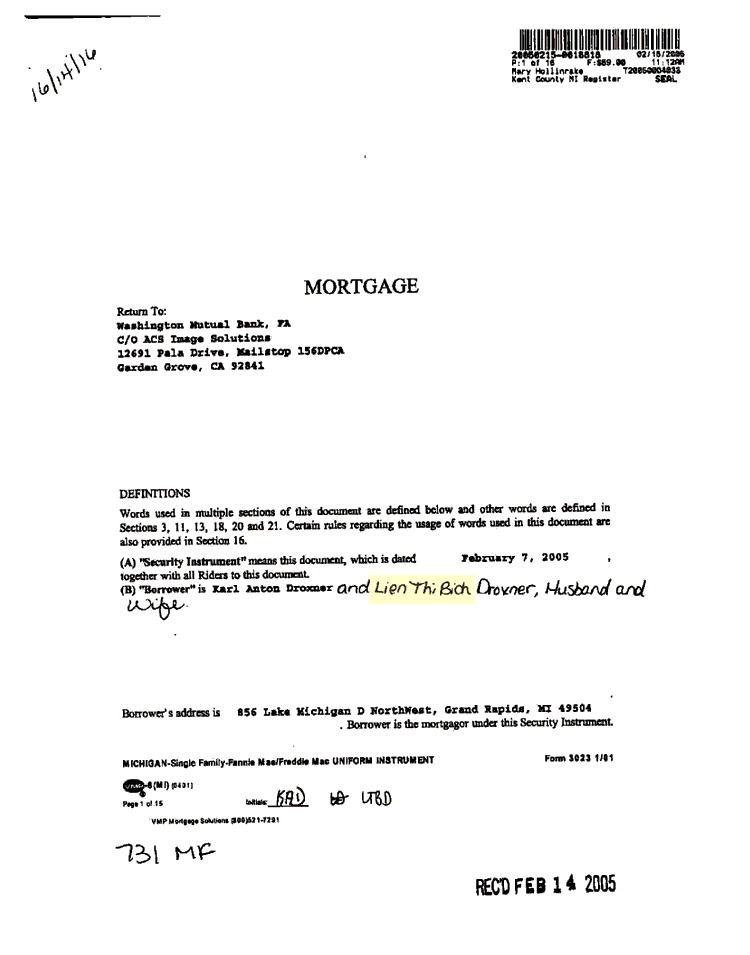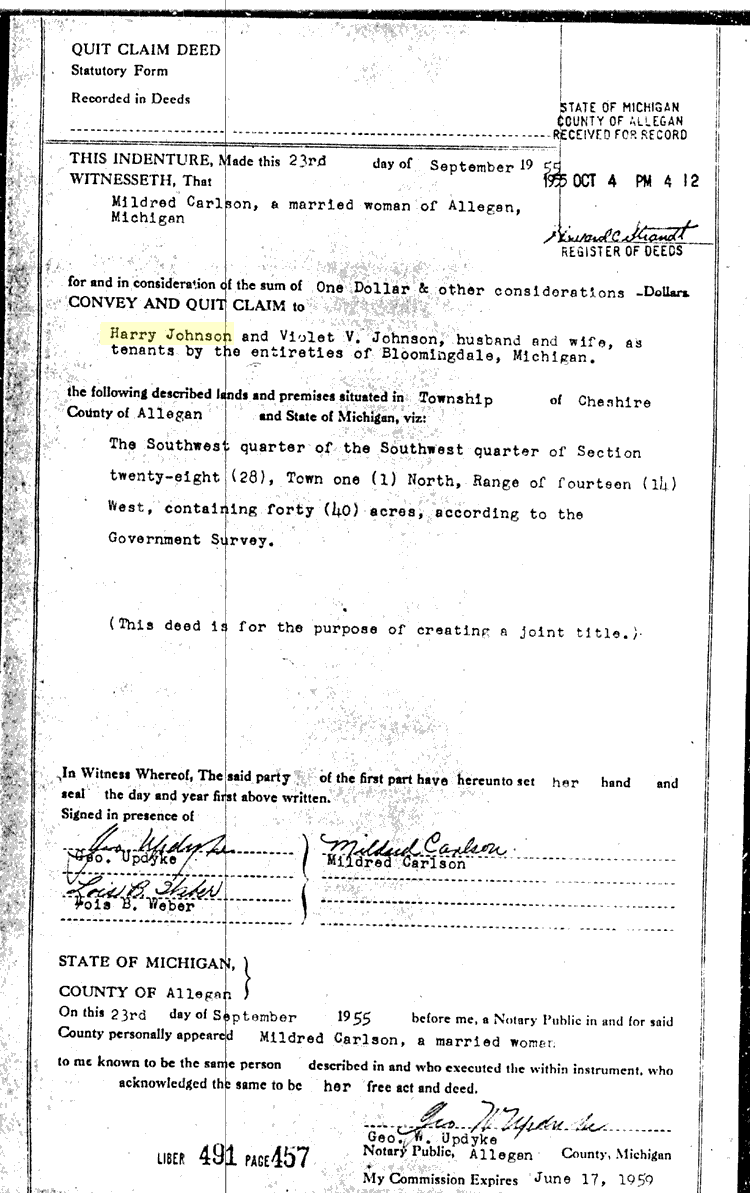
Foreclosure is almost always a messy business, and sometimes things don't go quite as planned. To wit:
Above is an affadavit by Provident Bank, the bank which foreclosed on a piece of property described in Paragraph 2.
Paragraph 3 explains that the property was foreclosed upon, and that due to inaction of the borrowers, Provident became owner of the property.
Paragraph 4 shows that there was a mobile home permanently affixed to the property (this generally means the axles are removed and it is set into a foundation).
Paragraph 5 explains that Provident sold the property.
Paragraph 6 states that another bank, Apex Financial, had a loan against the mobile home, and suggests that Apex then
repossessed the home - whether this means they kicked everyone out and nailed the door shut or physically ripped it from the foundation, I'm not altogether certain (though, for purposes of the story here, we'll assume that they dragged that thing straight outta the concrete).
Then the best part (7 through 9)- Provident Bank
bought the mobile home and abandoned it.
Does this mean that at the end of the story, there was half a mobile home and a half-ton of mobile home parts layin' around somewhere? That part of the story's not in here, but I think it's not a bad ending.
